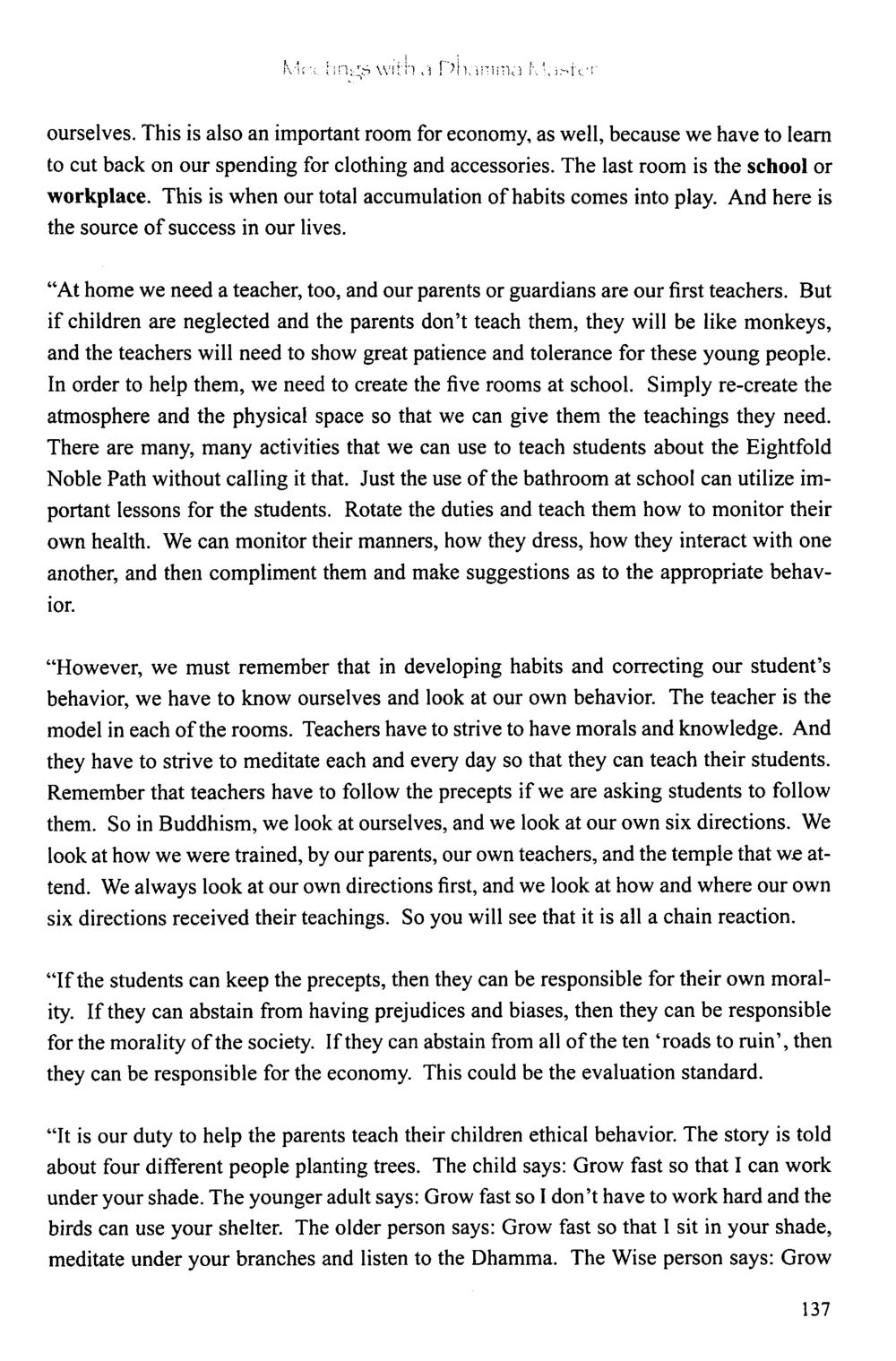Lessons from a Dharma Master : หน้า 137/164
The Meeting with a Dhamma Master : หน้า 137/164 Explore the essential teachings on morality and responsibility in education from a Dharma Master perspective, focusing on the role of teachers and parents.
0 ครั้ง

สรุปเนื้อหา
In this insightful text, a Dharma Master emphasizes the vital role of teachers and parents in shaping children's morality and behaviors. The importance of creating supportive environments in homes and schools is discussed, with a focus on teaching the Eightfold Noble Path through daily activities. Teachers serve as role models, needing to embody the values they impart, while cooperation with parents is essential in guiding children towards responsibility in society and moral fortitude. The narrative includes an allegory of four individuals planting trees, illustrating varying motivations and wisdom levels in nurturing growth. The teachings advocate for self-reflection in educators and emphasize that if students uphold ethical precepts, they can significantly contribute to their society's moral and economic well-being. By cultivating virtues, children learn to avoid prejudices and biases, ensuring a healthier community.
หัวข้อประเด็น
-Role of teachers in morality
-Importance of home education
-Creating supportive school environments
-Eightfold Noble Path interpretations
-Influence of parents on children's behavior
-Allegory of tree planting
ข้อความต้นฉบับในหน้า
หน้าหนังสือทั้งหมด




































































































































































